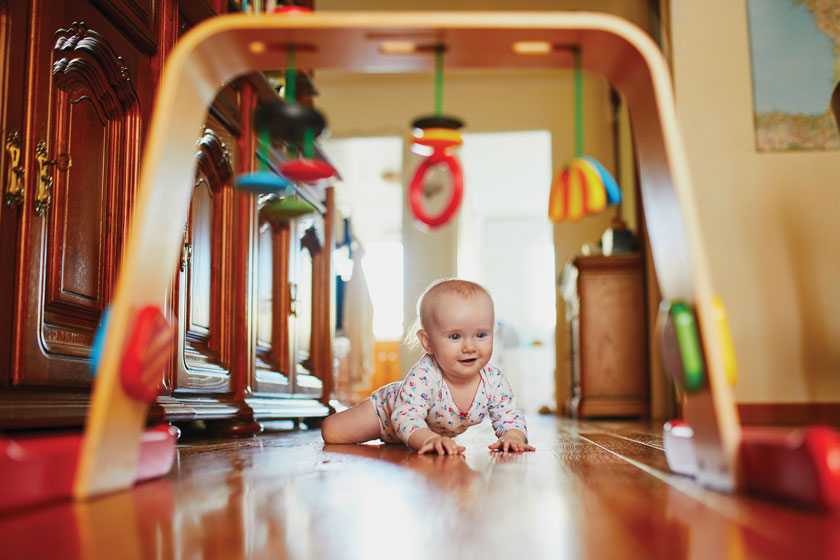Do babies and toddlers need to be active? How much physical activity do they need to thrive? The answer is, yes they do!
These days, it’s quite common to see very young children completely absorbed into a screen of some sort – either a handphone or a tablet. They may be watching a movie, playing a game, etc. Just look around you the next time you go to a restaurant, for example, and you might be able to see exactly what we mean!
You may not realise it but the screen culture has had an effect on how little children are spending their time these days. Many of them have started to become sedentary at a very young age. This is alarming, especially since we know that being physically active every day is important for the healthy growth and development of babies, toddlers and preschoolers. In fact, activity of any intensity should be encouraged, including light activity and more energetic physical activity.
Baby movements
Although babies need sleep and rest, they should also be encouraged to be active throughout the day, every day!
- A safe, secure and nurturing environment
- Encourage movements such as reaching and grasping objects
- Even before your baby begins to crawl, the little one should always be prompted to be physically active.
- Prompt your baby to move his head, body and limbs whenever possible
- There should be supervised floor play, including tummy time.
- Once they are mobile they should be encouraged to be as active as possible.
Toddlers need lots of exercises
- Once a child starts to walk, physical activity should be encouraged for at least three hours each day.
- Physical activities can be spread throughout the day, indoors or outside.
- Ensure light activity such as standing up, moving around, rolling and playing take place often.
- More energetic activity for toddlers includes skipping, hopping, running and jumping.
- Active play, such as using a climbing frame, riding a tricycle, playing in water, chasing games and ball games, are great ways for this age group to get moving.
- It’s crucial that parents make an effort to promote physical activity instead of allowing their young ones to spend hours in front of the TV or on their digital gadgets.
For Health’s Sake
Children under five should not be inactive for long periods, except when they’re asleep. Watching TV, travelling by car, bus or train, or being strapped into a buggy for long periods is not good for a child’s health and development. There’s growing evidence that such behaviour can increase their risk of poor health.



